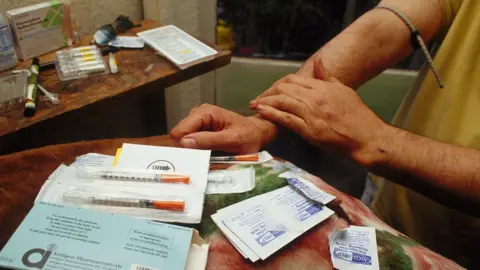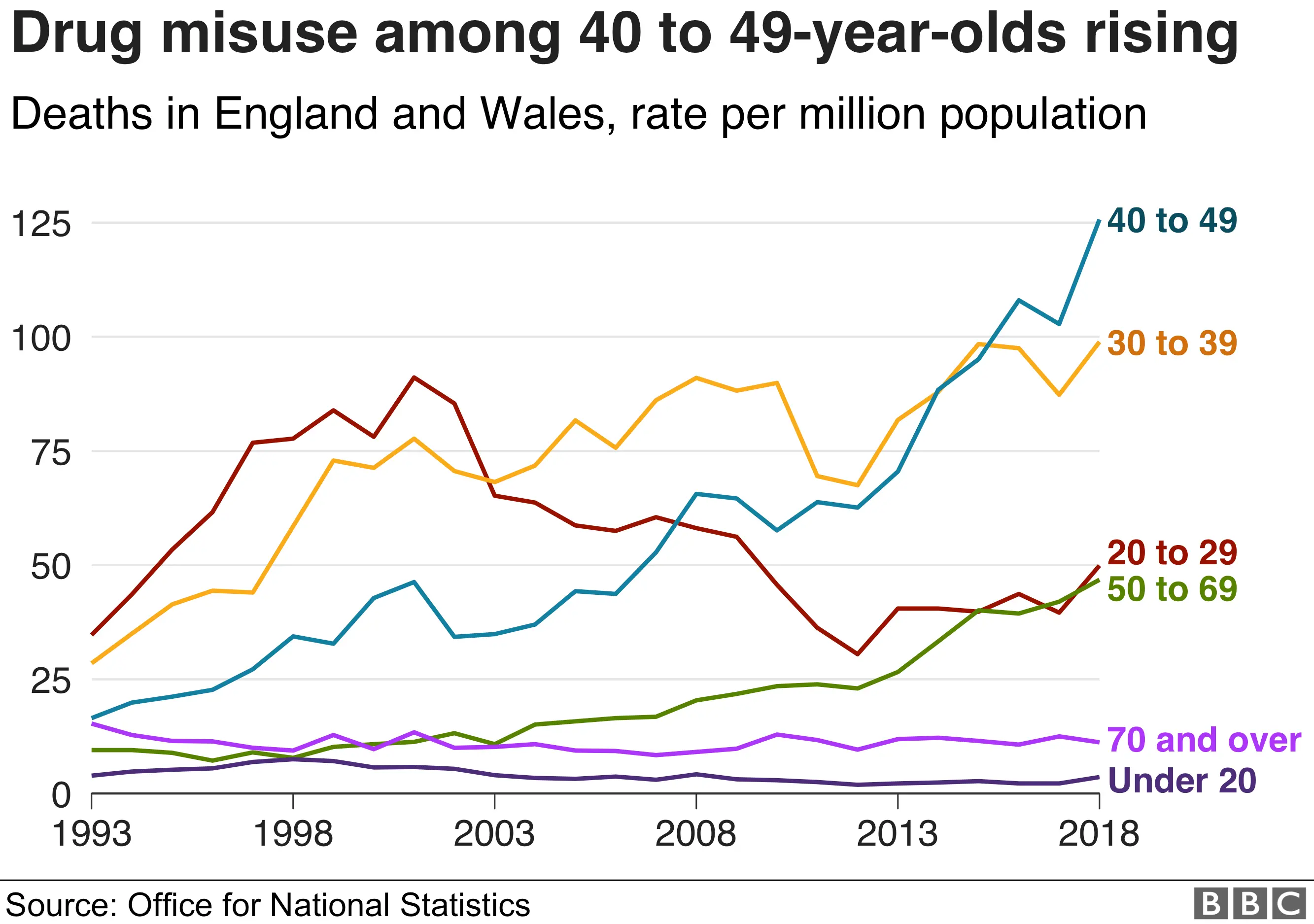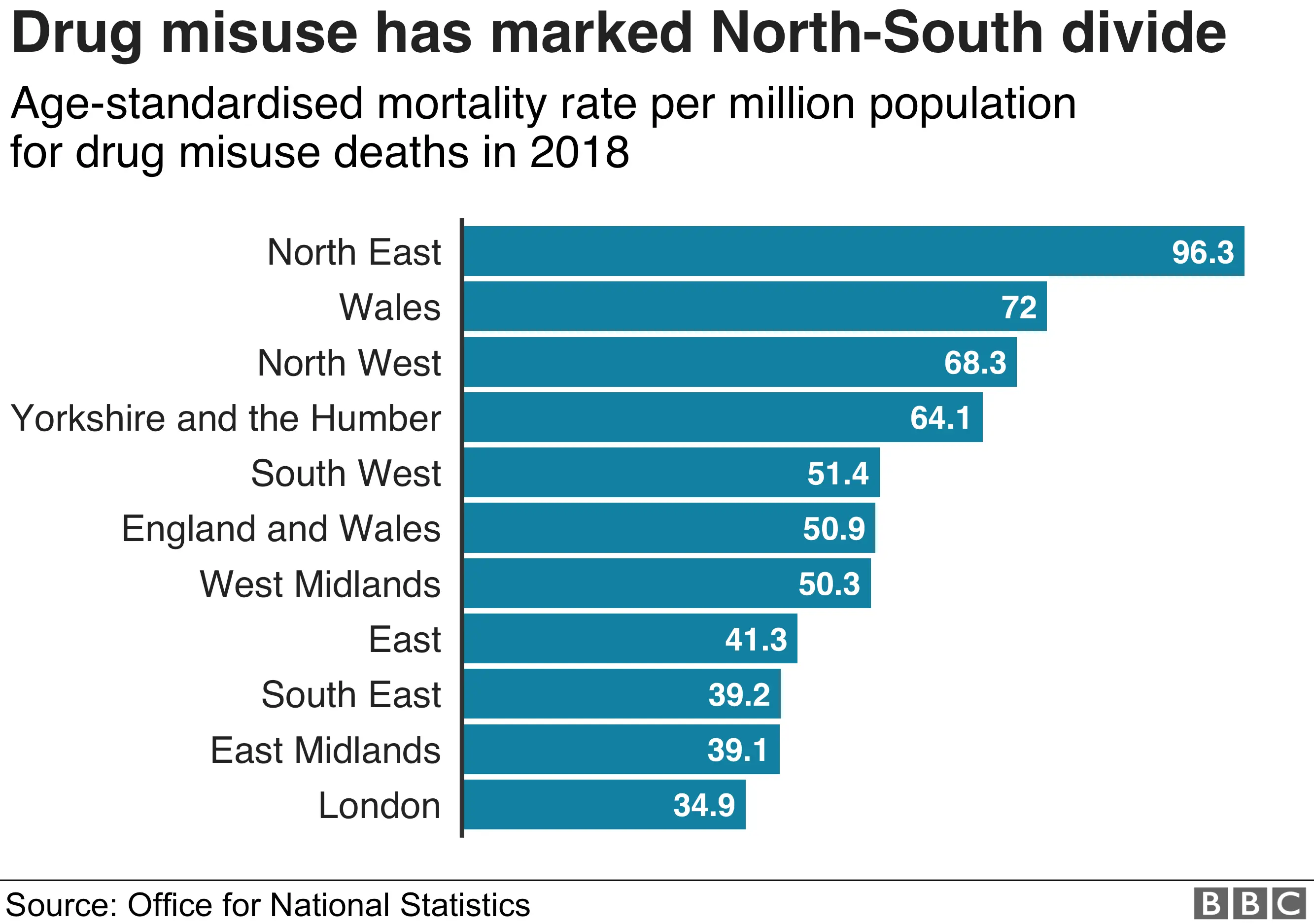Drug deaths soar to highest level on record
 Getty Images
Getty ImagesDrug deaths rose sharply in England and Wales to reach record numbers last year, official figures show.
There were 2,917 deaths from illicit drugs in 2018, the Office of National Statistics said, a rise of 17%.
Most deaths were due to opiates such as heroin, but cocaine deaths doubled in three years.
A government adviser blamed cuts to treatment programmes, while health officials said they were commissioning an independent review.
A total of 4,359 people died due to drug poisoning last year, the ONS said - a figure which includes accidental overdoses and suicides from medicinal drugs, as well as illicit drug use.
It was also the biggest annual increase in drug deaths since records began in 1993, the statisticians said.
Deaths from drug misuse among men aged between 40 and 49 rose "significantly", they added.

The North East had the highest death rate in England, while London had the lowest.
Deaths from new psychoactive substances - known as "legal highs" until they were banned in 2016 - doubled in a year to 125, following a fall the previous year. MDMA deaths rose from 56 to 92.
Professor Alex Stevens from the University of Kent, who serves on the government's advisory council on the misuse of drugs, said there had been a 47% increase in deaths from drug poisoning since 2013.
'Decimating funding'
He told BBC Radio 4's Today programme that funding cuts to treatment services of 27% over three years were the cause of the latest increases.
"These treatments save lives - you're about half as likely to die if you're in opioid substitution treatment than if you're not - and they also save money by reducing costs for the NHS and reducing crime," he said.

Why are more people dying from illegal drug use?

There is real frustration among frontline drug workers, experts and academics at the record numbers of people dying from illegal drugs in England and Wales.
The blame game has begun with fingers pointed at government cuts and at a failure to implement evidence-based measures that would reduce deaths.
But others say responsibility lies with many of the drug users themselves.
The Home Office notes that half of illicit drugs deaths are among users who have either never taken part in treatment or have not done so for many years.
The purity of heroin and crack is increasing, its price is falling and suppliers are becoming more sophisticated at getting their product to customers in every part of the country.

The Transform Drug Policy Foundation said the rate of drug deaths in the UK was now more than double the European average, and 12 times that of Portugal, which decriminalised drug possession in 2001.
Shirley Cramer, chief executive of the Royal Society for Public Health, said the figures were "as predictable and avoidable as they are tragic".

"The case for a more compassionate, harm-reduction approach has now been clear for years - and yet the government has continued to lead with tough rhetoric around law enforcement, all the while presiding over sustained cuts to local authority budgets," she said.
Rose Humphries, who lost two children to heroin overdoses and campaigns against current drug laws, said people like her sons were treated as "collateral damage" by the government.
A Department of Health and Social Care spokeswoman said drug misuse was at similar levels to a decade ago, but added: "We are absolutely committed to reducing it and the harms it causes."
The government has commissioned a "major independent review" of drugs, examining the system of support and enforcement, she said.
